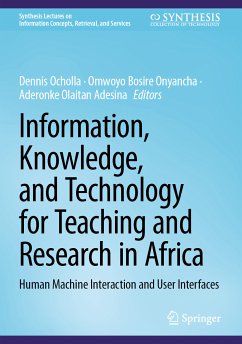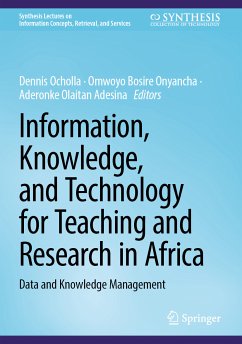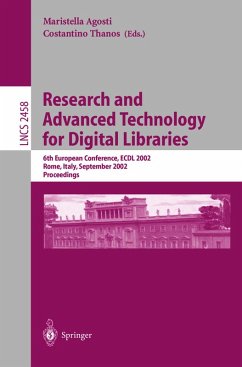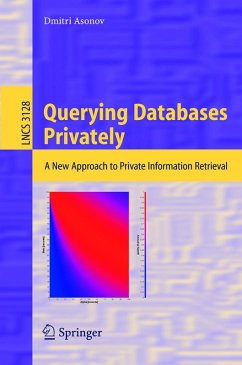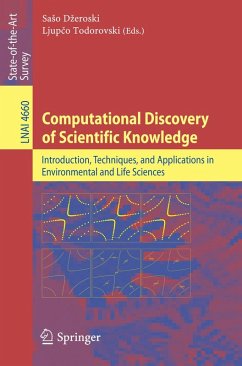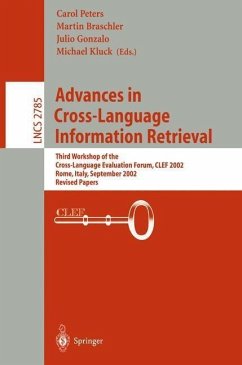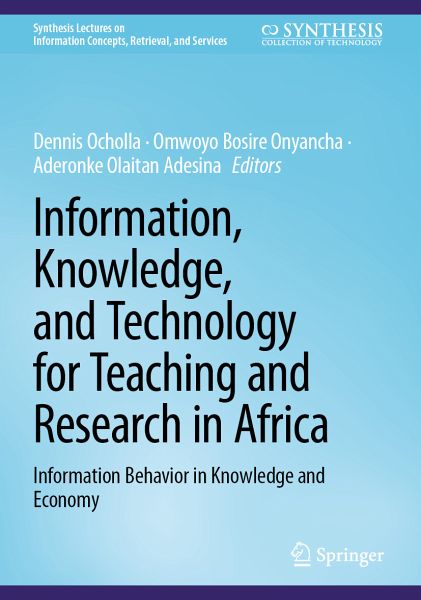
Information, Knowledge, and Technology for Teaching and Research in Africa (eBook, PDF)
Information Behavior in Knowledge and Economy
Redaktion: Ocholla, Dennis; Adesina, Aderonke Olaitan; Onyancha, Omwoyo Bosire
Versandkostenfrei!
Sofort per Download lieferbar
32,95 €
inkl. MwSt.
Weitere Ausgaben:

PAYBACK Punkte
16 °P sammeln!
This book focuses on information seeking and the knowledge economy for teaching and research in Africa. The book first explores the evolution and current state of information-seeking behavior research, demonstrating its importance in informing practice, policy, and design of information systems. Despite the informal sector's substantial contributions to the national economy in Uganda, there is a lack of studies delving into its information needs, as well as an information gap in government, NGOs, and other stakeholders. The book proposes that an appropriate information behavior model for infor...
This book focuses on information seeking and the knowledge economy for teaching and research in Africa. The book first explores the evolution and current state of information-seeking behavior research, demonstrating its importance in informing practice, policy, and design of information systems. Despite the informal sector's substantial contributions to the national economy in Uganda, there is a lack of studies delving into its information needs, as well as an information gap in government, NGOs, and other stakeholders. The book proposes that an appropriate information behavior model for information-poor communities such as informal entrepreneurs must be grounded on oral traditions and indigenous knowledge and should be sensitive to poverty, infrastructure, and illiteracy. The negative impact of the lack of financial literacy skills for women entrepreneurs is investigated and solutions for this problem are suggested, including regular assessments of women entrepreneurs' financial literacy skills and the introduction of training courses. The role of academic libraries in universities, library services for students with disabilities, and accessibility of library services to students with disabilities is discussed, and theoretical models for enhancing service in academic libraries are presented. The book highlights the specific challenges and opportunities related to information literacy for secondary schools and concludes by examining the rapid changes in library and information science research in South Africa.
Dieser Download kann aus rechtlichen Gründen nur mit Rechnungsadresse in A, B, BG, CY, CZ, D, DK, EW, E, FIN, F, GR, HR, H, IRL, I, LT, L, LR, M, NL, PL, P, R, S, SLO, SK ausgeliefert werden.



